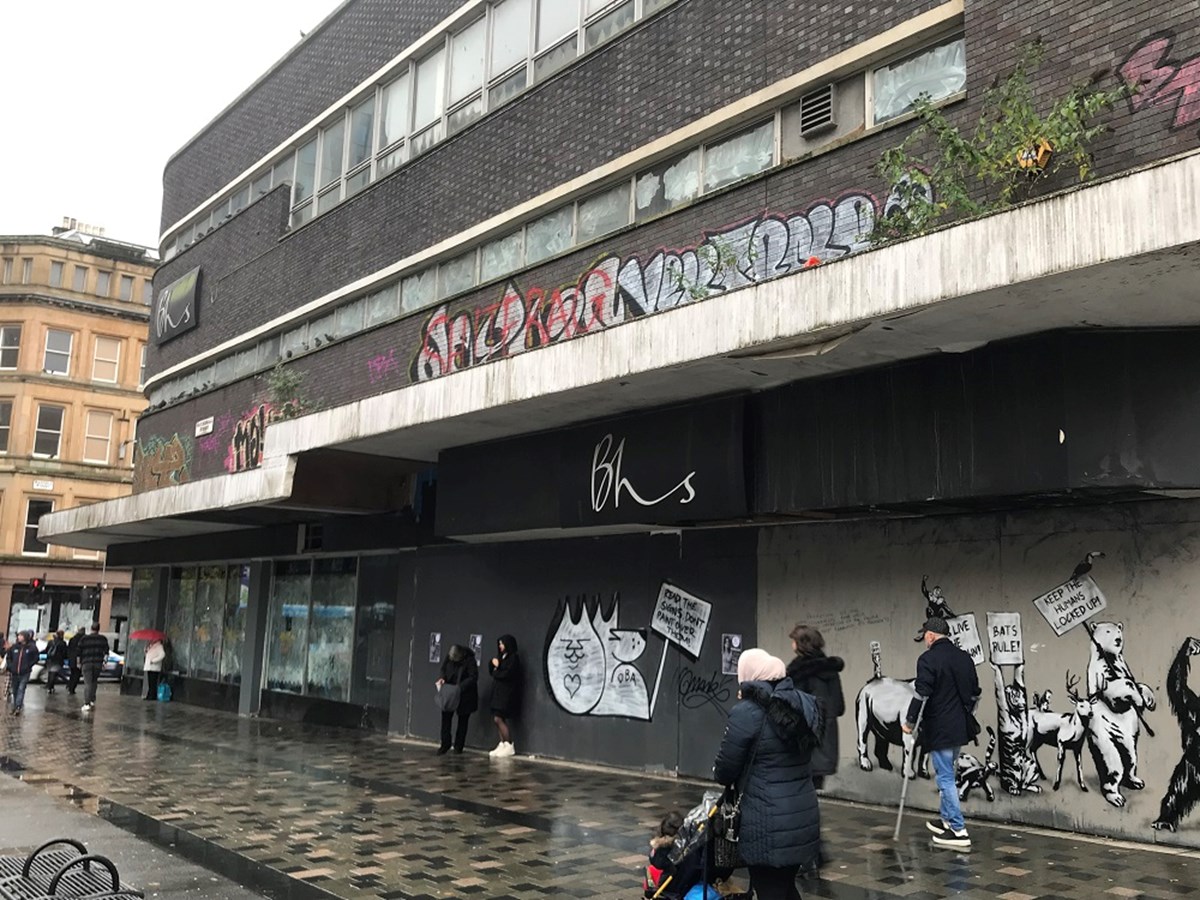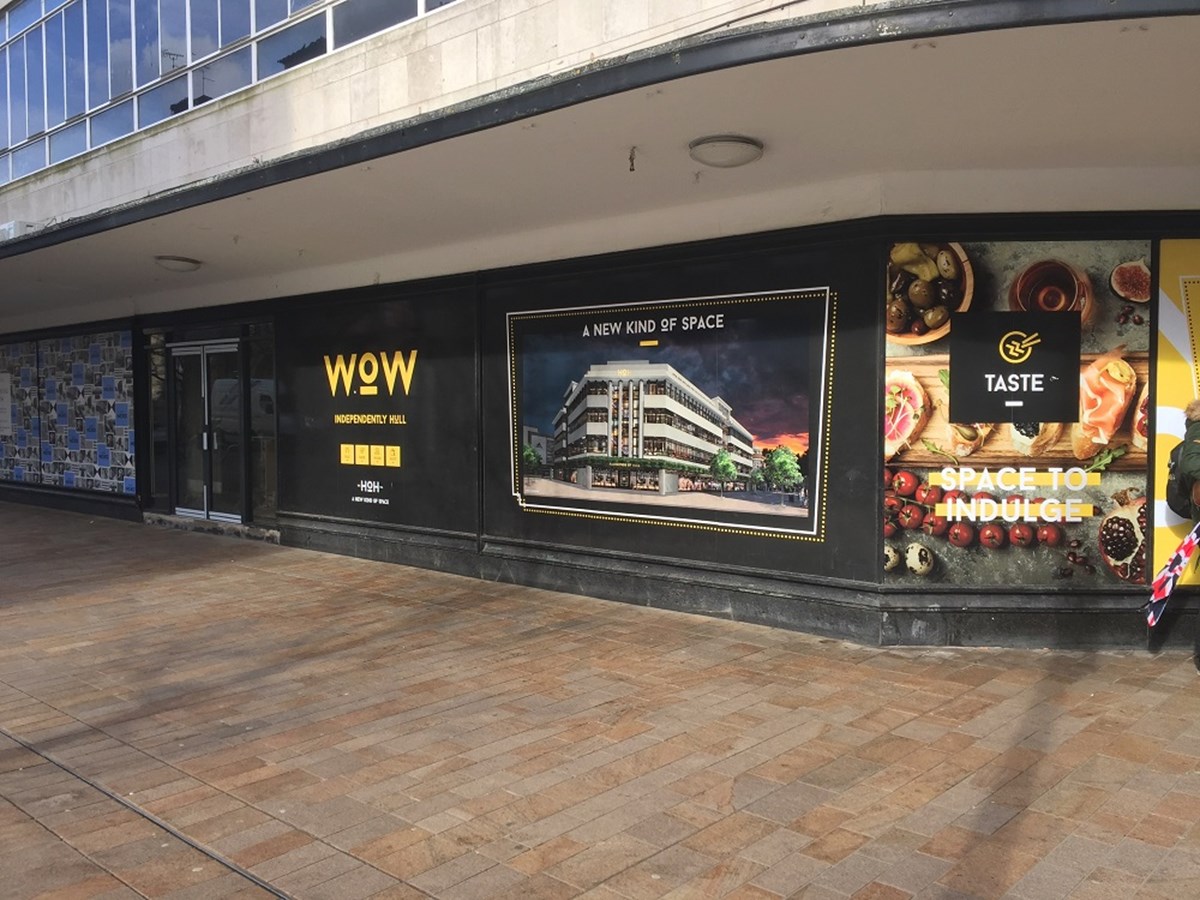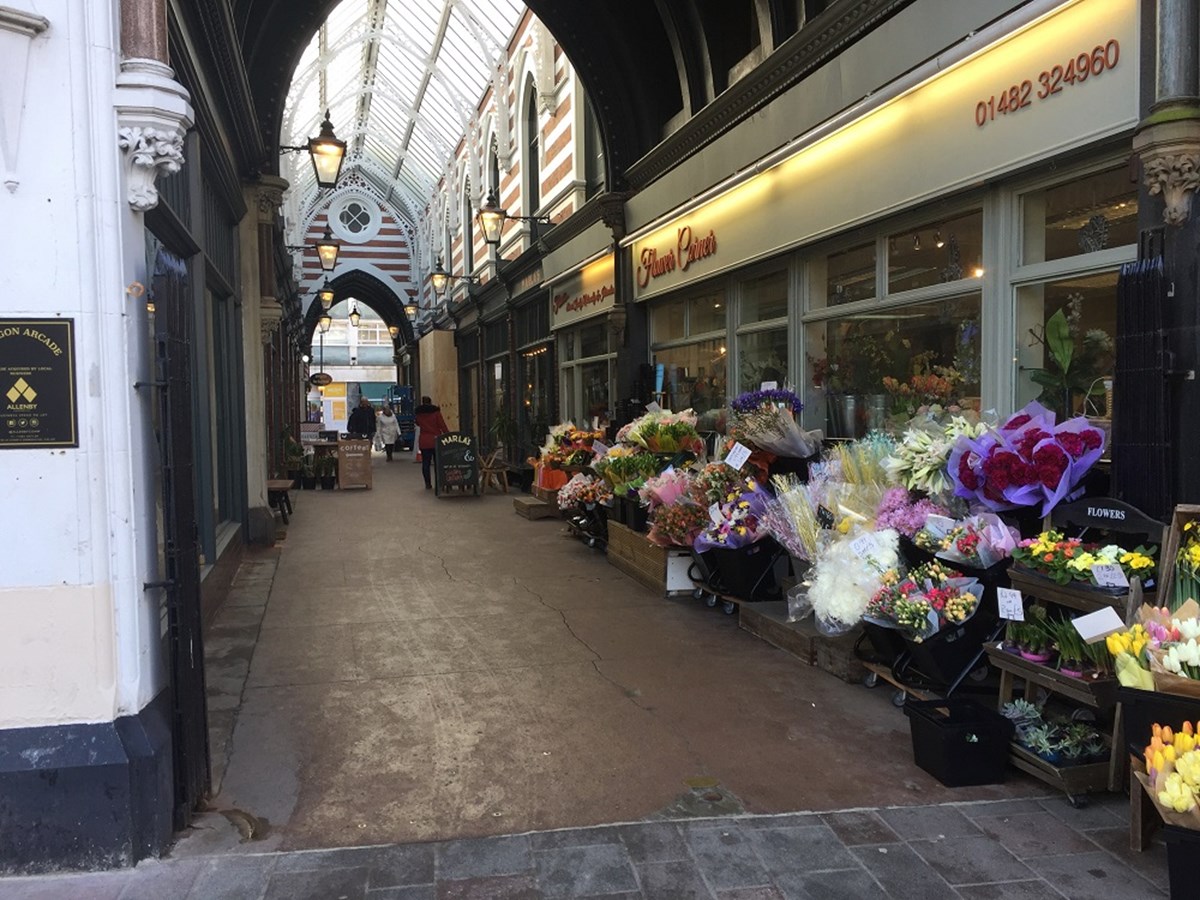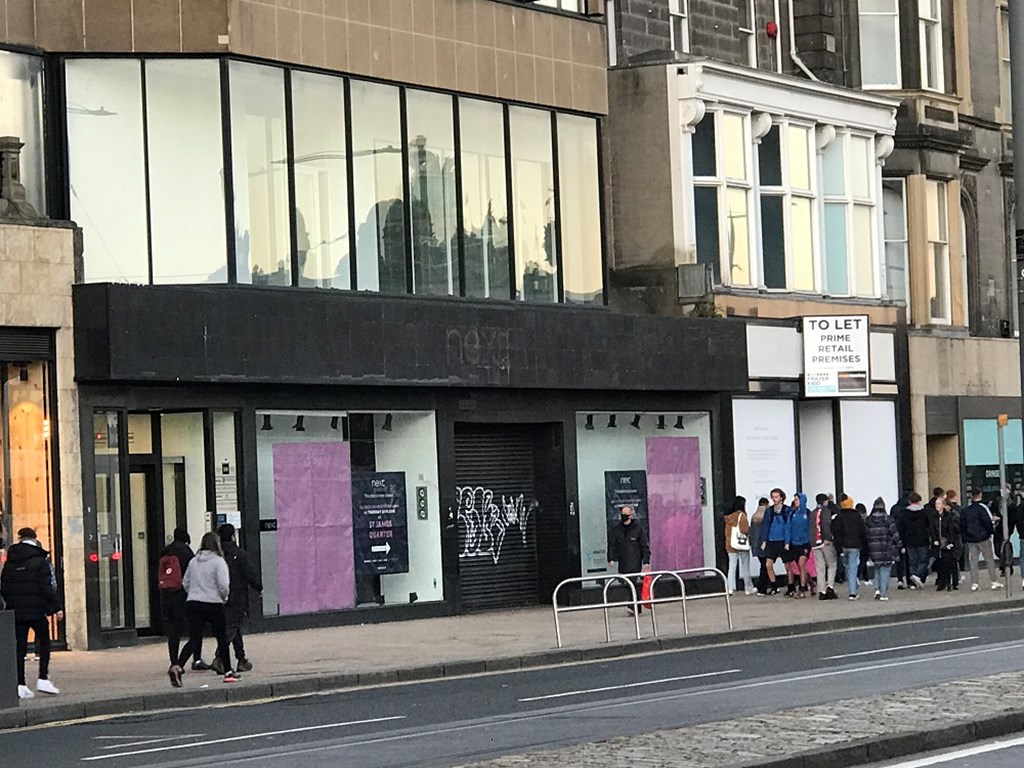Increasing resilience in city centres through diversity, innovation and appeal is an urgent planning concern in a time of turbulence and change on the High Street.
The REPAIR – Real Estate, Place Adaptation and Innovation within an integrated Retailing system – project sought to generate new knowledge about the adaptive capacity of High Streets and, ultimately, the resilience of city centres. Focusing on five regional UK city centres – Glasgow, Edinburgh, Hull, Liverpool and Nottingham – to explore planning, city centre management, asset management and real estate, we identified transformations in property usage and ownership; retailing innovations; evolving real estate practices; and effective stakeholder relationships in repurposing schemes.

A vacant store in Glasgow city centre

A more thriving part of the city
The study identified key challenges. Ownership of retail space is increasingly fragmented, with more overseas and smaller, less cash-rich investors replacing institutional investors, necessitating co-ordination through urban management vehicles, such as property owner BIDS. The rise in vacancies is outstripping other use changes, often leaving hard-to-adapt spaces. Public sector commitment towards the public realm and experience-orientated visits is crucial for private sector investment. Targeted regulatory relaxation for signage and pavement licenses would avoid businesses feeling hidden. Symbiosis between residential and other users is needed. We found shared desires among stakeholders that could tackle these challenges.

Turbulence and change have effected retail in cities like Hull

The Paragon Arcade in Hull has benefitted from local regeneration
